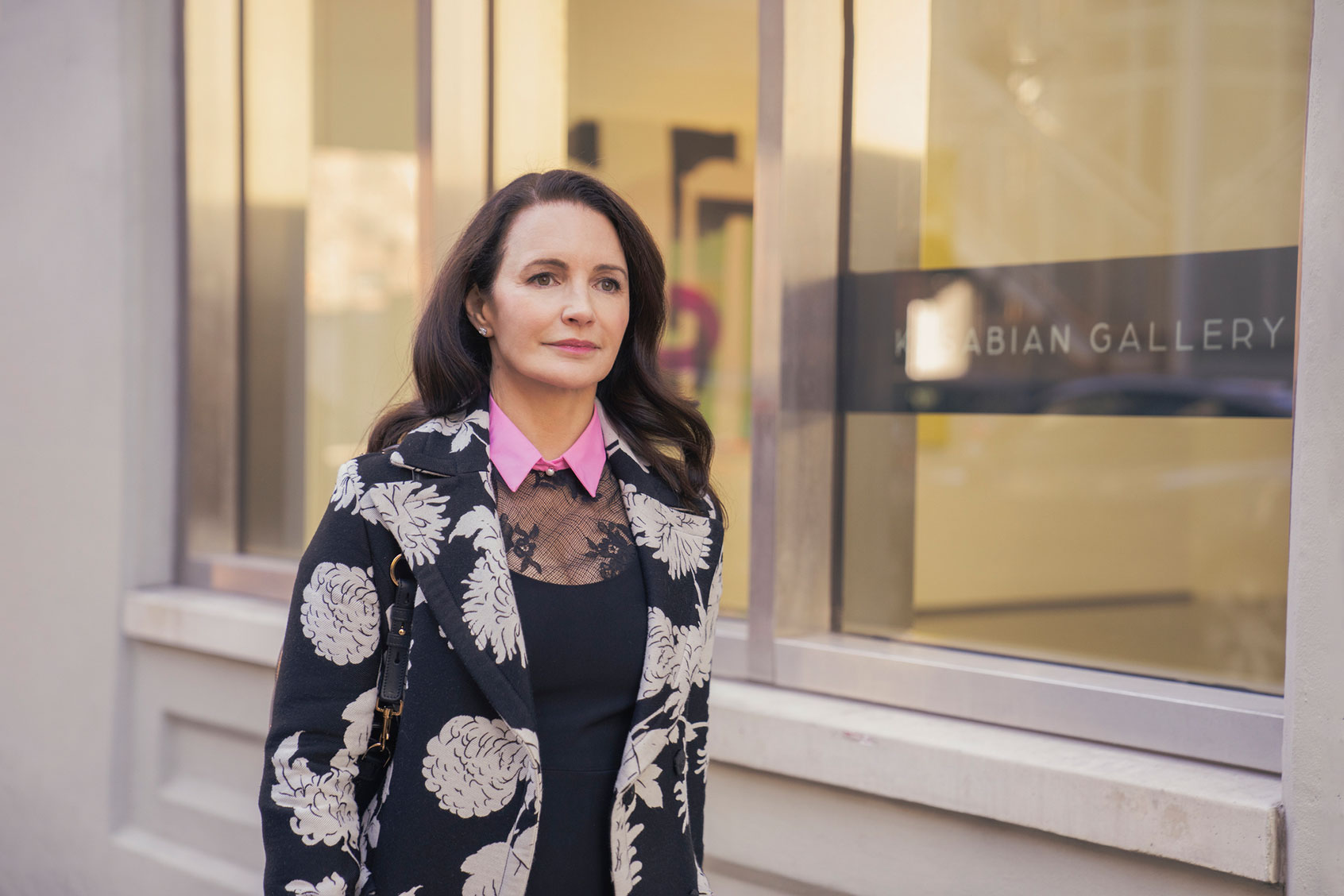Expecting “And Just Like That…” to model aging gracefully is folly. Expecting the show to considerately explore the insecurities surrounding the maturing female body is – I can’t even finish that sentence. If you’re at all familiar with the various legacies wrought by “Sex and the City,” I shouldn’t need to.
Among that show’s many shortcomings is its casual fatphobia and general body shaming which, in a few memorable cases, was used as that week’s object lesson. In “Sex and the City” Carrie (Sarah Jessica Parker), Charlotte (Kristin Davis) and Miranda (Cynthia Nixon) are constantly encountering scenarios reminding them of their bodies’ unruliness or unworthiness.
Even Samantha (Kim Cattrall), who announces near the beginning of the show that she’s fine with her body ends up lamenting her slight weight gain later on. There’s a realism to this, especially as women journey farther into middle age and find, as Charlotte does in “A Hundred Years Ago,” that losing weight gets harder as we grow older.
“I mean, in my 30s and 40s, I could drop five pounds like that!” she frustratedly chirps to Anthony (Mario Cantone) in one of their unburdening phone calls. “And now, nothing is working. I hate menopause! It’s the devil.”
We’re with you, sister. Or we would be if the reason for this epiphany weren’t so ludicrous.
Charlotte is returning to work after years of stay-at-home motherhood and is desperate to make the right impression. She treats herself to a belted dress accurately described as Shirley Temple-meets-not-fully-deprogrammed-Wednesday Addams chic – one that she wears well, but the 20-something boutique clerk makes her question by presenting her with matronly alternatives.
This sets off Charlotte’s fear of irrelevance, specifically as that pertains to the art world where gallery owners tend to hire rail-thin younglings. To psych herself up, Charlotte hangs up a photo of herself when she was in her prime.
Hooray for fat-bottomed girls. This show tells us they exist to make Charlotte and other size 4s and 6s feel better about themselves.
But when she zips herself into the dress, the reminder of her youth has the opposite effect: she grows distressed at her lower abdominal region which, to be clear, is entirely in proportion with her slender frame. Charlotte insists there’s a paunch, but nobody else sees it. Not her children, not Harry (Evan Handler), who reviews the look with a va-va-voom. Charlotte insists it’s all wrong: “The belt is supposed to be down here, but it keeps riding up because of my belly.”
“So lose the belt,” Harry says.
“Everybody keeps saying to lose the belt! But the belt’s the whole thing,” Charlotte insists, adding, “I don’t need to lose the belt, I need to lose the belly.”
Reader, she does not lose the belly because again – it’s not actually there. Instead, she stuffs herself into at least three versions of shapewear before tottering out to gasp farewell to Lilly and Rock in an uncomfortably high register.
 Kristin Davis in “And Just Like That” (Max)She makes it down the street to her new gallery, where she’s greeted by her fears, i.e. two gamines in high fashion black, who refer her to their supervisor – a zaftig woman of an unknown double digit size wearing a crop top that exposes her midriff. Charlotte’s new boss looks comfortable in her skin and urges Charlotte to get comfortable.
Kristin Davis in “And Just Like That” (Max)She makes it down the street to her new gallery, where she’s greeted by her fears, i.e. two gamines in high fashion black, who refer her to their supervisor – a zaftig woman of an unknown double digit size wearing a crop top that exposes her midriff. Charlotte’s new boss looks comfortable in her skin and urges Charlotte to get comfortable.
So a smiling Charlotte excuses herself to the employee restroom where she ditches her triple layers of elastic torture and puts on her belt.
We need your help to stay independent
Progressive, right? Hooray for body-loving fat-bottomed girls. Queen says they make the world go ’round, and this show tells us they exist to make Charlotte and other size 4’s and 6’s feel better about themselves.
Look, I go hard on this show. It’s my job! And if not for this, the episode “A Hundred Years Ago” would have much worth remarking on since it continues the story of Carrie’s reconnection with Aidan (John Corbett) and examines how her rekindling of that flame impacts her new friend and, until Aidan, fellow singleton Seema (Sarita Choudhury) who worries she’s being edged out of Carrie’s life. But that fixes itself, and we discover that Carrie’s having the best orgasms of her life. Good news for her!
Next to that, Charlotte’s pudge paranoia is a thimble of that bone broth she forlornly sucks down in her quick weight-loss quest. That is, until series creator Michael Patrick King, who co-wrote the episode with Julie Rottenberg and Elisa Zuritsky, decided to go the “fat lady as confidence builder” route. Take it from somebody who knows – this is a tired look.
For a franchise that still hasn’t ameliorated its size diversity shortcomings, it’s also what passes for body positivity.
Among all the original characters, Davis’ has long harbored the most hang-ups about her physique even in her prime. “Oooh, I hate my thighs!” she seethes in Season 1 “Sex and the City” episode “Models and Mortals,” adding, ” I can’t even open a magazine without thinking ‘thighs, thighs, thighs.'”
The “fat lady as confidence builder” is a tired look. For a franchise that still hasn’t ameliorated its size diversity shortcomings, it’s also what passes for body positivity.
That half-hour taps into our love-hate relationship with the fashion industry and the unattainable beauty standards it promotes to “average” women. Except Carrie, Miranda and Charlotte were never average. There were always well-to-do before two of them married into massive wealth, while Miranda made a fine living as a New York lawyer. And they were also unforgiving of fatness. Several episodes were devoted to Miranda’s self-loathing related to her weight gain during pregnancy. Even Carrie took pleasure in finding out that Natasha, the woman Big chose to marry instead of her, used to be chubby.
Charlotte has never been entirely comfortable in her skin, which may inform why she’s so ardently sex-positive with her children. And there’s an intelligence in that rendering, as if she admirably recognizes that she doesn’t want her kids to inherit her bugaboos.
So the sticking point isn’t Charlotte’s insecurity, which is played for laughs by showing the ludicrous extremes to which she’ll subject herself in pursuit of her youthful figure. I mean, who among us hasn’t tortured themselves thusly?
No, what’s problematic is the way that bathroom dash to flush her Spanx transforms the gallery manager into an object to which our sparrow-boned Charlotte can positively compare herself.
Want a daily wrap-up of all the news and commentary Salon has to offer? Subscribe to our morning newsletter, Crash Course.
In that subplot’s denouement King and his co-writers may believe they’re giving a nod to the Lizzo revolution when, instead, they’re regressing to the many headlines pleading with well-meaning folk, usually teeny white women, to stop congratulating fat people for their perceived bravery or confidence when all they’re doing is living.
As a series that resumes the stories of three of the most iconic women in pop culture in middle age, one would like to think they’d find more inroads to conversations about how women’s bodies change over time, something not often broached in TV and movies.
Part of that is menopausal weight gain. Charlotte’s right – it sucks! But most of us deal with it and maybe buy new clothes, some with belts we’ll keep or lose. One wishes the writers of “A Hundred Years Ago” had a good sense to bring Charlotte to that conclusion on her own instead of involving a bystander we may never get to know beyond that moment. Then again considering how clumsily this show handles most everything else that falls outside of the original “Sex and the City” perspective, perhaps that’s for the best.
New episodes of “And Just Like That” debut Thursdays on Max.
Read more
about “And Just Like That”

